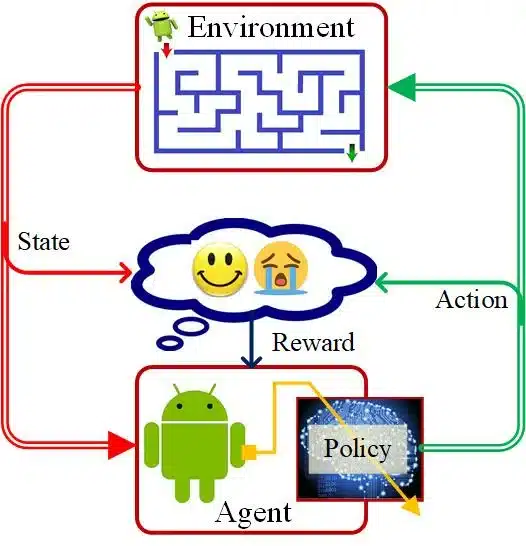Summary note on Reinforcement Learning
Reinforcement Learning is a type of machine learning in which an agent learns to make decisions by interacting with its environment. The agent receives feedback in the form of rewards or penalties based on its actions, allowing it to learn the optimal strategy for maximizing long-term rewards.
The main concepts of Reinforcement Learning include the agent, the decision maker, the environment the agent interacts with, the actions the agent can take, the rewards the agent receives based on their actions, and policy, which defines the agent’s strategy to make decisions.

Reinforcement Learning algorithms enable the agent to learn from experience, gradually improving its decision-making capabilities over time. Some popular learning algorithms include Q-learning, Deep Q Networks (DQN), and Policy Gradient methods.
These algorithms have applications in various fields, such as robotics, games, finance, and healthcare, where autonomous decision-making is crucial. By understanding the fundamental concepts of this learning approach, developers can create intelligent systems that can learn and adapt to complex environments.
Reference
- Bonaccorso G., Mastering Machine Learning Algorithms (2nd Edition), Packt Publishing, 2020
If you like the presentation, you can always donate to support my activity! One coffee is enough!

